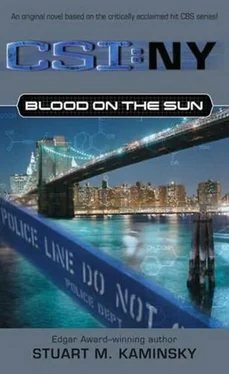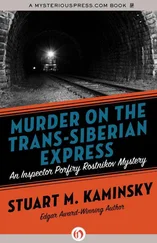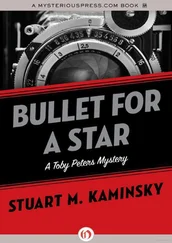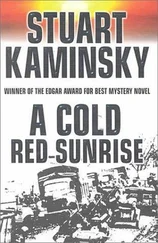They looked down at the body, showing no emotion as Stella said, "Leave the nails in the body. Move them as little as possible. Pry them up slowly. It's going to be a little tough. They're deep in the floor."
Both paramedics nodded. They had the tools and the experience and now they had a new story, one of the more interesting ones, something they could tell their family and friends.
" 'Sheep follow sheep,' " said the man, whose black-on-white plastic nameplate identified him as Abrams. He was looking down at the words written in chalk at the foot of the body.
All three women looked at him.
"That's what it says," said the man. "Hebrew. I think it's from the Talmud. He spelled sheep wrong."
* * *
The phone call came late in the afternoon while Mac was sitting alone going over the computer-generated crime scene images Danny had created, checking the Internet for information on linden trees and their parasites.
"Someone wants to talk to the CSI in charge of the Vorhees case," the lab tech who had taken the call said.
"Man?"
"Yes."
"And he said 'CSI'?" asked Mac, who was looking at the screen, where a pulpy white creature was inching its way along the rim of a heart-shaped leaf.
"Right," said the lab tech. "You taking it?"
"Put it through," said Mac. When he heard the click indicating an open line, he said, "Detective Taylor."
"Kyle Shelton," Shelton replied calmly.
Mac hit a button on the white phone carrier and put the phone back in its cradle. The call, now on speaker, was being automatically traced.
"What's on your mind?" asked Mac, who was busily going to the desktop file on the Vorhees case. He opened it and quickly found the pages on Kyle Shelton.
"You ever serve in the military?"
"Marines," said Mac.
"Me too," said Shelton, "but you know that."
"I know it," he agreed. "Is the boy alive?"
"Depends," said Shelton. "Life and death are transitions, a continuum."
"Is he alive?" Mac asked again.
"Yes," said Shelton wearily.
"You killed his family," said Mac.
" 'I am become Death, shatterer of worlds,' " said Shelton. "You know who said that? J. Robert Oppenheimer when he saw the first atomic explosion."
"You've been playing games with us," said Mac. "Why?"
"Games aren't over," said Shelton. "I have a present for you."
"What's that?"
"You've had time to trace this call," Shelton said. "Come here and find it."
"Shelton," Mac said.
"Sorry," said Shelton. "Out of time."
He hung up. Mac pressed a button and a voice answered.
"We've got it. We're on the way."
"Where?" asked Mac.
"He called from the Vorhees' house."
* * *
Flack sat back, his hands folded on the table, his head cocked slightly to the right. He was looking at Joshua and waiting.
"I'm not a fraud," said Joshua. "My mission is no small sordid cult."
"Do the others know about the drinking?" asked Flack.
"No," said Joshua. "I'm being tested by the Lord. Yeshua will show me the way."
"Meanwhile you have to have a drink during the day," said Flack.
"Yes," said Joshua with a sigh, "but I do not get drunk and I'm always lucid and focused."
"You kill Glick?" asked Flack.
"No."
"Joel Besser?"
"Why would I kill one of our own?" Joshua said incredulously.
"Divert suspicion," said Flack. "Or maybe he knew you killed Glick and was going to tell us."
The room was air-conditioned, but the air-conditioner was unable to function at full strength during a heat wave like this one. Flack knew from experience that there would be deaths from the heat, mostly old people living with open windows and unable to afford a fan, unable to get up, go down a flight of stairs or two and walk a block or more to an air-conditioned food market or a museum or the library. More people would die because of the suffocating heat than from murder.
"You have a devious mind," said Joshua.
"The job requires it," said Flack without emotion. He opened a file folder in front of him.
"And the murder of an innocent like Joel Besser brings on the images I see waking and sleeping, the images that fade, but not completely, when I have a drink or two," said Joshua.
"Images?" asked Flack.
"Black babies, children," said Joshua, leaning forward. "Starving, ribs showing, leg bones without muscle, heads too large, pleading eyes too wide, beyond hope, mouths open, letting in flies. My faith is tested every moment of every day. Why would a benevolent God and His son allow this to happen? My mission is to understand. My weakness is that I am afraid the challenge is beyond my powers."
Joshua put his head in his hands, sobbed and said, "In a very real sense, I am responsible for the death of Joel Besser. I brought him into our fold with the promise of fellowship, a return to his abandoned Jewish identity and the hope of eternal life."
Joshua looked up at Flack, eyes wet, face slack.
"At times like this, I find it almost impossible to believe in those things. Do you believe in God? That there is a God?"
"Sometimes," said Flack, looking down at the file in the open folder. "You have any idea who might want to kill Joel Besser?"
"Yes," said Joshua.
"Let's talk about it and then check your hands for gun residue."
"Always a policeman," said Joshua, shaking his head.
"Always," said Flack.
* * *
The two uniformed officers at the Vorhees house had gone by the book. The problem was that the book changed every few years. A shrill sound was coming from a door across the entry hall. The two officers had gone to the door, weapons in hand, careful of where they were stepping in case there was trace evidence on the floor. The sound grew louder and more unpleasant with each step they took. The officer in the lead, Kitteridge, was young, broad shouldered, about thirty, a raspberry birthmark on his left cheek. The other officer, Nash, was overweight and probably close to retirement.
The younger officer pushed open the kitchen door. There was no one inside, but on the white table in the middle of the room was a telephone steadily giving off a low scream. As much as they wanted the noise to stop, they knew enough not to step into the kitchen and hang it up. The older officer closed the kitchen door and said, "Front, back?"
"Back."
The officers moved toward the front door, stepped outside and closed the door behind them. The sound of the screaming telephone disappeared. The younger officer moved quickly around the house to cover the back door.
"Nobody's been in, nobody out," Nash told Mac five minutes later. "We got here four minutes after you called it in."
Mac nodded, checked his watch. That meant thirty minutes had passed since the call from Shelton.
Mac put on a pair of latex gloves, shifted his kit to his left hand and took his gun from the holster on his belt with the right. Nash took out his service revolver again and followed Mac inside.
As he stepped forward, Mac noted, not for the first time, that the old house constantly spoke, with settling beams, creaking old floors and ceilings. The noisy air-conditioning had been turned off. Mac was sure he could still smell blood. He could also hear a familiar sound from the direction of the kitchen.
He moved forward, Nash at his side, weapon in hand, and pushed the kitchen door open. The four-chair white table was empty except for the white cordless phone that beeped to alert the owner that it was off the hook, the charger alongside it.
Mac moved forward and told Nash to call his partner inside. When Kitteridge came in, Mac said, "Check the house. Be careful. If you see or hear something suspicious, don't do anything. Just come back here and let me know. Don't touch anything."
Читать дальше












